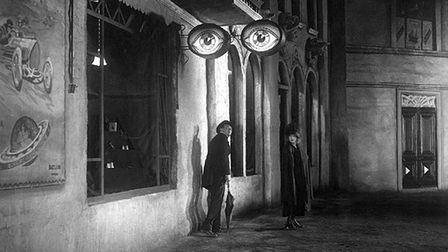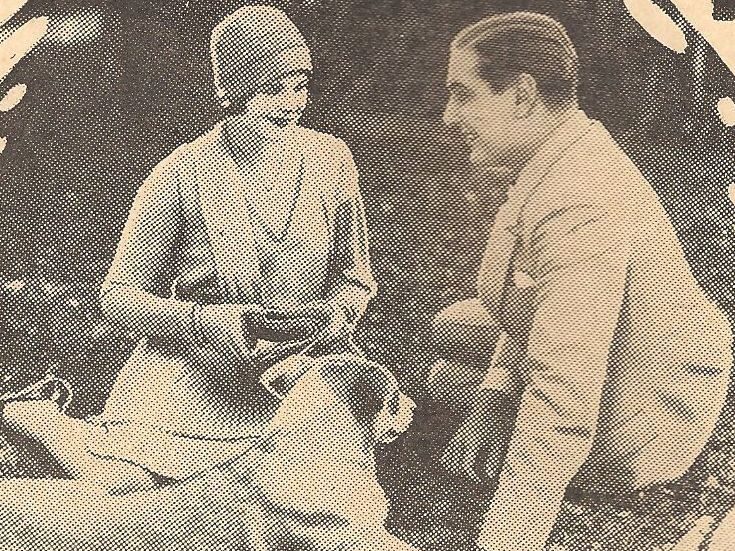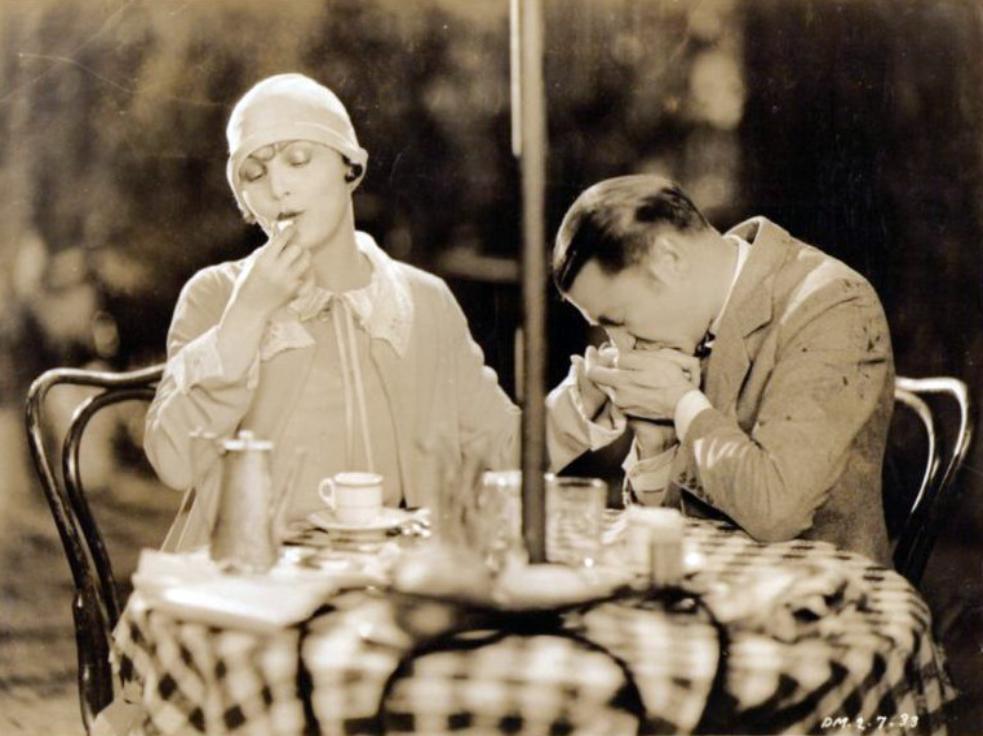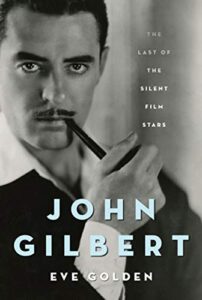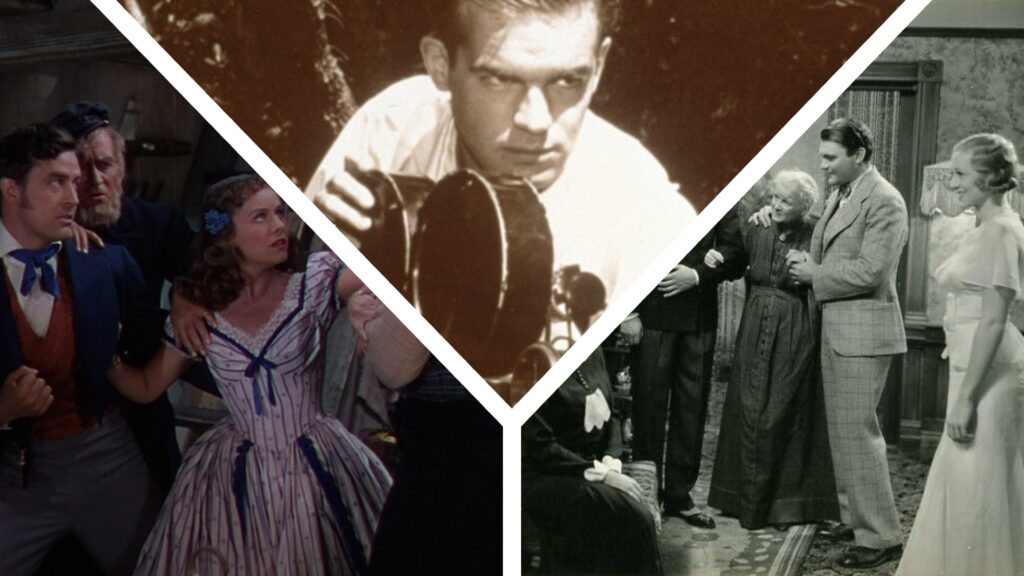
2023 was a great year for cinema. It’s the first time in several years it felt like there was always something worth checking out at my local theater each month. Even with such stiff modern competition, I had just as good luck with the classic films I indulged in.
From streaming to reparatory theaters to classic film festivals, here are my favorite classic film discoveries from the past year:
Applause (1929)
With how much early talkies are dismissed—with good reason— I’ve recently made it my personal quest to find the exceptional sound films of 1929. So far, Rouben Mamoulian’s Applause reigns supreme. A rather generic story of a show-woman sacrificing her all to give her daughter a better life outside of show business, Mamoulian’s fluid camera work vaults this into another dimension.
While some of the acting is certainly overly melodramatic, Mamoulian’s Applause belongs alongside the likes of 12 Angry Men, Badlands, and Citizen Kane as the best directorial debuts.
Forgotten Silver (1995)
Technically this isn’t a classic film but Peter Jackson’s mockumentary shows off the filmmakers’ deep knowledge of cinema history. This made-for-tv mockumentary creates the fictional New Zealand filmmaker Colin McKenzie and explores his many contributions to cinema history after Jackson unearths several film cans of McKennzie’s old films.
Claiming McKenzie created the first feature-length film, the first synchronized sound film, and an Intolerance scale epic of the Biblical Salome, Forgotten Silver heaps upon so many accolades onto this unknown filmmaker that it should be obvious to even the most gullible viewer that this is too good to be true. Beyond the humor of the film, Jackson and his crew faithfully create the look of films from several eras and genres in the silent film world from early actualities to 1920s mega-epics.
Employees’ Entrance (1933)
Warren William’s cutthroat businessman Kurt Anderson in Employees’ Entrance is a character and performance that has stuck with me throughout the year. In a lesser film, Anderson would simply be a selfish, demanding villain the movie demonizes and punishes. But in Employees’ Entrance, Anderson’s propensity to ruin the lives of his competitors, clients, and employees to save a few cents is mixed with a moralistic crusade to stand up for the little man.
Anderson berates the stores’ board members for sitting idle on their yachts amidst such a dire economic era. He rebuffs his superiors’ demand to take austerity measures, refusing to lay off workers or stop spending money for production just to put the stockholders at ease. Kurt Anderson embodies the glamor and underbelly of the American Dream acting as a fascinating, bizarre cross between Gordon Gecko and George Bailey.
Add in Wallace Ford as Anderson’s gold-hearted protege and Loretta Young as a love interest and you have a film that works both as a compelling character drama and a reflection of pessimistic, Depression-era American culture.
The Street (1923)
We all know the surrealist, fantastical The Cabinet of Dr. Caligari. With a flavor of later city symphony films like Berlin: Symphony of a Great City, Karl Grune’s The Street is the opposite side of German Expressionism emphasizing the absurdity and danger of everyday life.
Similar to Martin Scorsese’s quirky After Hours, The Street takes place over the course of one night as an everyman throws himself into the shady midst of a German city. The Street is the rare film whose plot hardly seems to matter creating a hypnotic adventure that brings German Expressionism into the drab contemporary world.
Over the Hill (1931)
Both modern and classic films don’t do a great job of representing the elderly but the rare films like Tokyo Story and Make Way for Tomorrow stand out as classics. After coming across it at this year’s Cinecon festival, I can confidently declare that Henry King’s Over the Hill belongs near the top of this nano genre.
Over the Hill follows the matriarch Ma Shelby as she works hard to hold the family of six together on their farm. Once widowed and in her later years, her declining health and precarious financial situation caused tension among her four children. Will someone be there to care for her like she cared for her children?
Best known for her work with D.W. Griffith, Mae Marsh at 36 plays Ma Shelby convincingly as a young mother and an elderly woman. Based on a 1920 silent drama, Henry Hill’s empathetic look at aging and family dynamics hardly leaves a dry eye in the house.
Sing and Like It (1933)
Comedies live or die by their casts. Sing and Like It works so well because it brings together a great cast of comedians and character actors from the 1930s: Edward Everett Horton, Nat Pendleton, Ned Sparks, and Zasu Pitts just to name a few.
The premise helps a bit too. A gangster (Nat Pendleton) bankrolls a tone-deaf singer (Zasu Pitts) after hearing her sing a sentimental song about mothers. Hijinks ensue as the gangster uses cash and threats to ensure his favorite talentless singer makes it big on Broadway. Sing and Like It is the perfect mix of Pre-Code quips letting a group of supporting characters have a field day without an A-list star soaking up all the screentime.
Black Sheep (1935)
Last year Criterion Channel streamed several of Allan Dwan’s films in a retrospective of the director’s decades-long career. In my deep dive into Dwan’s films, I fell in love with his unique ability to weave comedic set pieces and banter with a tense dramatic arch. My favorite of the batch was the little-known Black Sheep.
Edmund Lowe, who I’m quickly finding to be one of the most underrated actors of his era, and Claire Trevor star as a professional gambler and man-eating socialite. The couple, antagonistic at first as in any good rom-com, work together to save a young man from a blackmail scheme on an ocean liner. Dwan brings out Lowe’s and Trevor’s romantic and comedic chemistry without sacrificing any of the film’s dramatic tension.
Reap the Wild Wind (1942)
Many dismiss Cecil B. DeMille as a talentless, cheesy, melodramatic showman. While I’ll give those people the melodramatic label, Reap the Wild Wind proves that it takes a talent like DeMille to pull off a big-budget adventure ride. If I explained the love triangle plot with its out-of-the-blue courtroom scene and a climactic fight with a giant rubber squid, you’d dismiss it as B-movie schlock.
But this is DeMille we’re talking about. Every decision in the script and by the actors is made for maximum drama and spectacle, no matter how non-sensical the twist might be. With a cast of John Wayne, Ray Miliand, Paulette Godard, and Raymond Massey, any classic film fan should seek out Reap the Wild Wind the first chance they get for a rip-roaring thrill ride.
Fail Safe (1964)
You wouldn’t think Dr. Strangelove but depressing instead of funny would be a winning formula but Sydney Lumet’s straight-laced approach to nuclear annihilation excels. Even without deadpan delivery and slapstick humor, we see just how a whole elaborate system of technology, military personnel, and government bureaucrats are in over their heads flying largely blind when the world lies in the balance.
Lumet creates the maximum amount of suspense cross-cutting between various government agencies as they fight over how to respond to the impending nuclear catastrophe. Henry Fonda’s calming president holds it all together and helps to keep you both entertained and provoked by the film’s timely message.
Almost Human (1927) & For Alimony Only (1926)
I had the chance to view some rare films at the UCLA TV and Film Archive’s on-campus viewing room. While I watched the hard-to-find, Oscar-nominated The Barker (1928) and a Rod La Rocque vehicle Gigolo (1926), Almost Human and For Alimony Only really stood out.
Neither films are all-time greats but they are enjoyable films that deserve to see the light of day. Almost Human, which I recently reviewed, is narrated entirely by a dog recounting how he saved his human owner’s family. For Alimony Only features the enigmatic Leatrice Joy and Clive Brook in a light comedy all about marriage and divorce. No matter how many movies you have seen, these two films locked up in the archives prove there are always more enjoyable films to find and waiting to see the light of day.
Year in Review
Beyond watching a lot of great modern and classic films in 2023, I had a great year exploring the everyday entertainment of Hollywood and beyond here at The Everyday Cinephile. I’ve run the gamut doing everything from participating in several blogathons to putting together a fifty-film ballot to nominate for this year’s National Film Registry. Of all my posts last year, here are my three personal favorite posts:
- Brigham Young—Frontiersmen (1940) Review: A bit of a white-whale review for me, I take a deep dive into the one-of-a-kind 20th Fox Century biopic of America’s most infamous polygamous.
- My Top 20 Most Wanted Lost Films: A list that has been years in the making trying to manifest the discovery of some lost films.
- All Quiet on the Western Front—Three Differing Adaptations: I compare the three different screen versions of one of my favorite novels.
Also, 2023 saw two of my articles being nominated for the yearly Classic Movie Blog Association awards. My review of Mary Pickford’s Sparrows was nominated for Best Film Review (Drama) and my review of Monsieur Verdoux was nominated for Best Film Review (Musical or Comedy).
As far as 2024, I’m currently working on a couple of series so stay tuned for more. Thanks for reading and I am looking forward to another great year of exploring the world of classic film!



